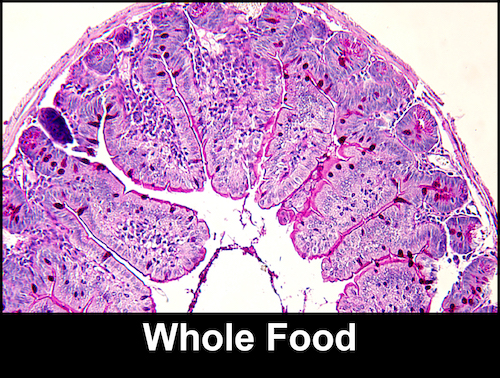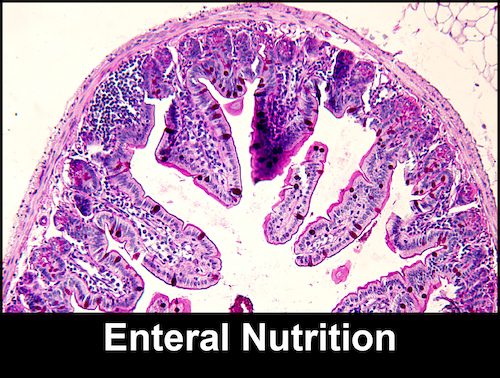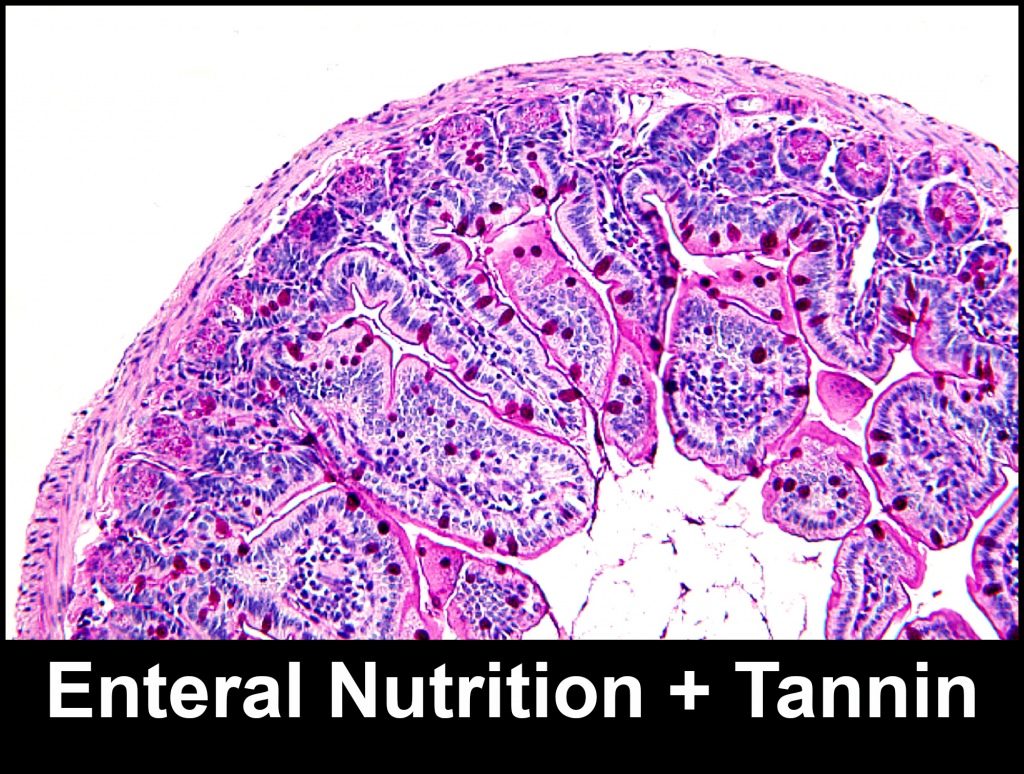Plant derivative could help patients reliant on tube feeding
Synesis, a University of Wisconsin–Madison spinoff developing a patented formula for liquid nutrition, is advancing a plant-based additive designed to reduce or eliminate severe side effects of tube feeding.
People who rely on tube feeding, called “enteral nutrition,” often suffer bloating, cramping and gastrointestinal infection, with symptoms that range from annoying to painful to life-threatening.
In experiments with mice, the company’s cranberry derivative has improved key markers for immune response, suggesting that it could help people who must obtain nutrition through feeding tubes — often due to swallowing problems related to cancer, neurological disease, surgery or developmental delay.
“About 450,000 people in the United States who rely on tube feeding live at home,” says Christian Krueger, a Synesis co-founder and director of the Reed Laboratories in the Department of Animal Sciences at UW–Madison. “Although they are our initial market, others in medical facilities may also benefit.”
Tube feeding relies on simplified formulas that are easy to ingest, but fail to provide stimulation and variety to the gastrointestinal system, Krueger says. In a mouse study of the gastrointestinal tract published in 2013, Krueger, Jess Reed, a professor of animal sciences, Ken Kudsk, a professor of surgery, and graduate student Joseph Pierre showed that their formula improved the barrier function of mucus and the immunologic activity of the gut-associated lymphoid system.
Overall, says Krueger, “we saw improved immune regulation and signal processing.”
Mucus is a gel that coats the interior lining of the respiratory and gastrointestinal tracts, physically preventing dangerous microbes from contacting cells. “Mucus also contains immune components,” says Krueger, “so if bacteria try to colonize, these components identify them as pathogenic and recruit immune cells to attack. So mucus offers multiple levels of defense.”
The idea was sparked about six years ago when Kudsk, a trauma surgeon at the William S. Middleton Memorial Veterans Hospital in Madison, presented a seminar on the effects of feeding trauma patients through an intravenous or gastric tube. “He noticed that those on IVs were more susceptible to respiratory infections, but when he put the same solution into the stomach, they became less susceptible,” says Krueger. “There is communication between the intestinal and the respiratory immune systems.”
Company co-founder Reed was intrigued that route and type of food had large effects on the gut immune system — and beyond. Knowing that plant chemicals called tannins could interact with the lining of the stomach and intestine, he began the train of research that led to Synesis’s innovation in enteral feeding. Tannin can be derived from many plant structures, including fruits or seeds.
Many plant-based compounds that are not regarded as essential nutrients can be beneficial, Krueger says. “The plant-derived tannin extract is causing the intestine to go on alert. If it sees the same set of simple compounds every day, as happens with conventional enteral formulas, it is not ready for a challenge. If it sees novel things, the guards are forced to pay attention: Is this good or bad?”
The company’s product will be considered a “medical food” by the Food and Drug Administration, Krueger says. “Medical foods are prescribed by a doctor, but they are not prescription drugs.” Although their regulation is more stringent than for conventional foods, it is far below pharmaceuticals, especially since the added tannin will meet the “generally recognized as safe” standard.
“In most cases, these patients have enough problems. We want to make the process of getting necessary nutrition more pleasant, and less troublesome.”
Christian Krueger
Synesis has interviewed hospital dietitians and nutritionists who oversee patients on tube feeding. “They tell us that nothing on the market includes our class of patented compounds, and that they would advocate for them with doctors and patients. Nutritionists understand that nearly everybody should be eating fruits and vegetables, which are part of a healthy diet but are lacking in liquid diets. We believe that adding tannin is a major step toward that more complete diet.”
Synesis maintains offices in Wisconsin Rapids and is jointly owned by BNK Enterprises, also of Wisconsin Rapids, and Complete Phytochemical Solutions of Cambridge.
Synesis was one of 13 finalists in the 2017 Governor’s Business Plan Contest. The path forward includes an application for funding from the Small Business Innovation Research or Small Business Technology Transfer programs. Krueger says Synesis next plans to conduct a small trial of people living at home who need enteral nutrition.
Within 18 months, Krueger says, the plant derivative could be challenging patient immune systems to put up a more active defense against pathogens, leading to significant improvements in quality of life and reductions in mortality. “In most cases, these patients have enough problems,” he says. “We want to make the process of getting necessary nutrition more pleasant, and less troublesome.
“We aim to produce results that are better than what’s on the market. Our goal is to improve health and quality of life.”
Tags: animal research, animal science, business, food, health, spinoffs








